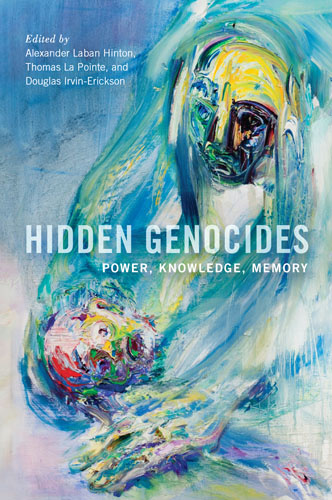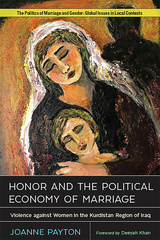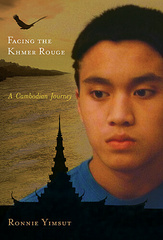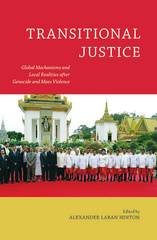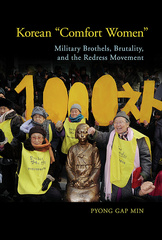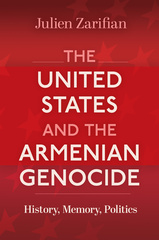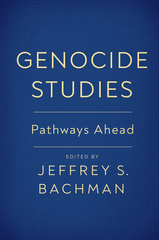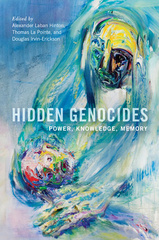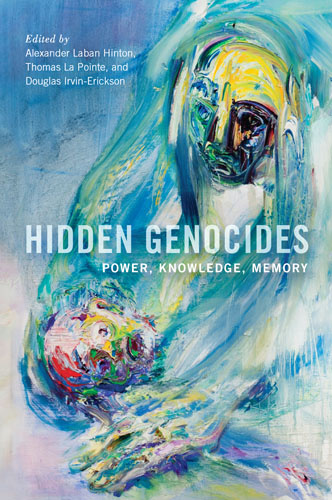
Hidden Genocides
Power, Knowledge, Memory
Why are some genocides prominently remembered while others are ignored, hidden, or denied? Consider the Turkish campaign denying the Armenian genocide, followed by the Armenian movement to recognize the violence. Similar movements are building to acknowledge other genocides that have long remained out of sight in the media, such as those against the Circassians, Greeks, Assyrians, the indigenous peoples in the Americas and Australia, and the violence that was the precursor to and the aftermath of the Holocaust.
The contributors to this collection look at these cases and others from a variety of perspectives. These essays cover the extent to which our biases, our ways of knowing, our patterns of definition, our assumptions about truth, and our processes of remembering and forgetting as well as the characteristics of generational transmission, the structures of power and state ideology, and diaspora have played a role in hiding some events and not others. Noteworthy among the collection’s coverage is whether the trade in African slaves was a form of genocide and a discussion not only of Hutus brutalizing Tutsi victims in Rwanda, but of the execution of moderate Hutus as well.
Hidden Genocides is a significant contribution in terms of both descriptive narratives and interpretations to the emerging subfield of critical genocide studies.
Contributors: Daniel Feierstein, Donna-Lee Frieze, Krista Hegburg, Alexander Laban Hinton, Adam Jones, A. Dirk Moses, Chris M. Nunpa, Walter Richmond, Hannibal Travis, and Elisa von Joeden-Forgey
Hidden Genocides is a penetrating scholarly searchlight illuminating an important and previously obscured landscape.
By problematizing, both theoretically and empirically, the canon of genocide studies, this collection makes an important contribution to an underdeveloped field.
Hidden Genocides is a timely collection of critical essays that effectively engages scholars in rethinking the way we conceptualize, approach, and teach genocide studies. A must-read for a wide-range of scholars.
Hinton, La Pointe, and Irvin-Erickson offer a useful prism through which to examine and weigh conventional accounts of genocide. It reveals cover-ups and makes the invisible visible.
Hidden Genocides collection is an essential guide to the latest scholarship on genocide studies from an international and comparative perspective.
Hidden Genocides is a penetrating scholarly searchlight illuminating an important and previously obscured landscape.
By problematizing, both theoretically and empirically, the canon of genocide studies, this collection makes an important contribution to an underdeveloped field.
Hidden Genocides is a timely collection of critical essays that effectively engages scholars in rethinking the way we conceptualize, approach, and teach genocide studies. A must-read for a wide-range of scholars.
Hinton, La Pointe, and Irvin-Erickson offer a useful prism through which to examine and weigh conventional accounts of genocide. It reveals cover-ups and makes the invisible visible.
Hidden Genocides collection is an essential guide to the latest scholarship on genocide studies from an international and comparative perspective.
ALEXANDER LABAN HINTON is the director of the Center for the Study of Genocide and Human Rights and a professor of anthropology and global affairs at Rutgers University, Newark. He is the author of the award-winning Why Did They Kill?: Cambodia in the Shadow of Genocide and six edited collections.
THOMAS LA POINTE is a member of the Center for Peace, Justice, and Reconciliation and an assistant professor of literature and composition at Bergen Community College. He has taught at the Shanghai International Studies University, China, and served as a journalist at the Institute for Central American Studies, Costa Rica.
DOUGLAS IRVIN-ERICKSON is an affiliate of the Center for the Study of Genocide, Conflict Resolution, and Human Rights at Rutgers University, Newark.
Acknowledgments
Introduction: Hidden Genocides: Power, Knowledge, Memory
Douglas Irvin-Erickson, Thomas La Pointe, and Alexander Laban Hinton
Part One: Genocide and Ways of Knowing
1. Does the Holocaust Reveal or Conceal Other Genocides?: The Canadian Museum for Human Rights and Grievable Suffering
A. Dirk Moses
2. Hidden in Plain Sight: Atrocity Concealment in German Political Culture before the First World War
Elisa von Joeden-Forgey
3. Beyond the Binary Model: National Security Doctrine in Argentina as a Way of Rethinking Genocide as a Social Practice
Daniel Feierstein
Part Two: Power, Resistance, and Edges of the State
4. "Simply Bred Out": Genocide and the Ethical in the Stolen Generations
Donna-Lee Frieze
5. Historical Amnesia: The "Hidden Genocide" and Destruction of the Indigenous Peoples of the United States
Chris Mato Nunpa
6. Circassia: A Small Nation Lost to the Great Game
Walter Richmond
Part Three: Forgetting, Remembering, and Hidden Genocides
7. The Great Lakes Genocides: Hidden Histories, Hidden Precedents
Adam Jones
8. Genocide and the Politics of Memory in Cambodia
Alexander Laban Hinton
9. Constructing the "Armenian Genoicde": How Scholars Unremembered the Assyrian and Greek Genocides in the Ottoman Empire
Hannibal Travis
10. "The Law Is Such as It Is": Reparations, "Historical Reality," and the Legal Order in the Czech Republic
Krista Hegburg
Contributors
Index

